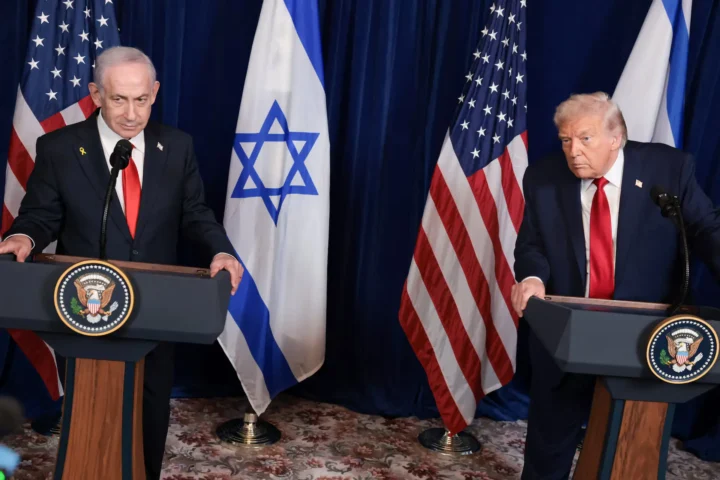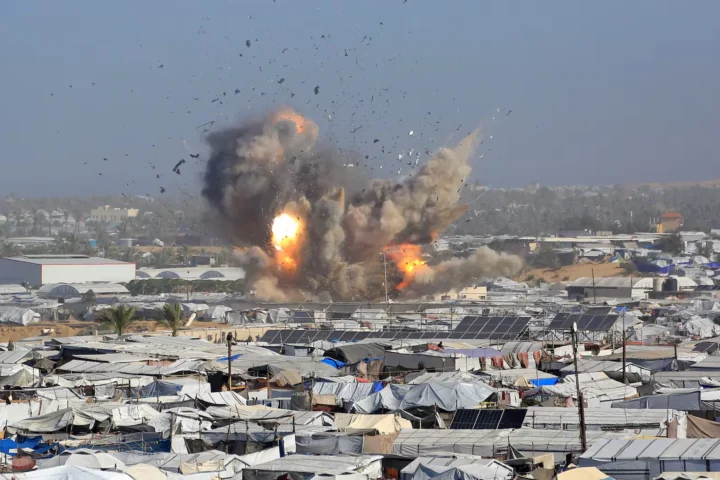In geopolitics, as in nature, vacuums rarely remain unfilled. When the Trump administration abruptly announced its withdrawal from the World Health Organization and paused critical U.S.-funded global health programs, many immediately warned that China would seize the opportunity to replace American leadership. But the reality is far more perilous—and more sobering—than a mere shift in geopolitical influence. It’s not China’s ascendancy we should fear most, but the profound silence that follows when no one steps forward at all.
America built a global shield against disease; now it risks tearing it down, leaving everyone—including itself—defenseless
For a quarter-century, America carefully constructed an elaborate global health ecosystem, investing modestly yet reaping spectacular returns. Despite consuming just 0.3 percent of the federal budget, U.S. global health spending has powered the lion’s share of international disease-fighting efforts. We have driven a 50 percent drop in HIV/AIDS deaths since 2003, helped cut malaria and tuberculosis fatalities by a third, and rescued millions of children from early graves. These are not abstract statistics. They are tangible triumphs: communities rebuilt, families reunited, futures restored.
Yet today, Washington’s disengagement threatens to dismantle this intricate safety net, strand millions who depend on American-led initiatives, and leave the world vulnerable to the next pandemic lurking just around the corner.
Beijing’s False Promise
Alarmingly, as America steps back, China inches forward. After Washington froze aid programs, Beijing swiftly offered replacement funds in Cambodia, Nepal, and Bangladesh. Chinese diplomats preach solidarity and consistency, vowing, in pointed contrast to the U.S., not to abandon vulnerable partners. Yet behind the reassuring smiles and pledges lies a calculated strategy driven more by self-interest than global goodwill.
Unlike America’s aid—which prioritized the poorest nations and deadliest diseases—China directs its funding largely toward countries strategically beneficial to its Belt and Road Initiative. Once generous in fighting malaria across Africa, Beijing now favors infrastructure in Southeast Asia and Latin America, investing where returns on geopolitical influence are greatest. Its distribution of COVID-19 vaccines laid bare this mercenary approach, funneling most doses to politically aligned nations rather than places with highest death tolls or greatest need.
China promises partnership, but its aid is diplomacy in disguise—aimed less at healing the world than advancing its own interests
China’s health diplomacy thus reveals a painful irony: while Washington’s critics fear Chinese global leadership, Beijing itself has little desire to assume America’s mantle. China’s leaders neither seek nor have the infrastructure or intent to fill the vast gaps left by America’s retreat.
The Real Danger: An Empty Throne
If Beijing won’t pick up America’s baton, who will? History suggests no one. Other nations, preoccupied with their own crises, are also scaling back commitments. The UK and France plan deep cuts to their foreign aid budgets. Germany is reconsidering priorities amid growing defense costs. Private philanthropy, like the Gates Foundation, focuses narrowly on particular diseases rather than the broader health architecture. This leaves the global health landscape worryingly bare, especially in sub-Saharan Africa, where many countries simply lack the resources to sustain what America built.
This vacuum doesn’t merely signify less U.S. influence; it risks catastrophe. American global health programs, from PEPFAR’s HIV/AIDS treatments for 21 million people to vaccination efforts protecting tens of millions of children each year, formed a frontline defense against diseases capable of destabilizing entire continents. Even more crucially, these programs nurtured an invisible yet essential global nervous system—laboratories, training centers, surveillance networks—that detect outbreaks before they explode into global pandemics.
In 2014, American funding prevented an Ebola disaster in Lagos, Nigeria. U.S.-backed labs identified COVID-19 as it began spreading beyond China, alerting a world otherwise caught off guard. Losing this infrastructure means losing our first, best line of defense. It creates blind spots where the next deadly pathogen can incubate undetected—until it arrives fully fledged on America’s doorstep.
Washington’s Crucial Choice
When President Trump’s 90-day review of foreign assistance concludes next month, America faces a defining choice. We can reinforce the house we built, recommitting to the health infrastructure that has kept not only the world safer, but America itself. Or we can continue dismantling it brick by brick, driven by misguided impulses to withdraw, leaving dangerous silence in our wake.
Leadership in global health is not charity. It is an investment in American security, prosperity, and moral authority. It’s the invisible thread linking far-off clinics in Nigeria and laboratories in Cambodia to neighborhoods in New York and hospitals in Los Angeles. When that thread unravels, all of us—regardless of nationality—become more vulnerable.
The greatest threat to America isn’t losing influence to China. It’s the hollow silence that comes when America abdicates a leadership role that, for decades, has safeguarded millions—including Americans—from harm. The vacuum we create today could haunt us tomorrow.
Let’s not allow short-sighted politics to dismantle the hard-won victories of a generation. The stakes are simply too high.











